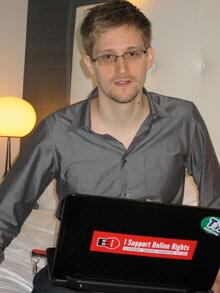In his usual grandstanding style, Nicolas Sarkozy has made bold statements about limited air strikes against Libyan targets which include Gaddafi’s Bab al-Azizia command headquarters in Tripoli, an important airbase in Sirte and the key Sebha military complex in the south.
Apart from the slight diplomatic problem that this theatrical gesture has little support across Europe and the ethical problem of banking on emotional reaction to jockey for post-revolutionary oil contracts, there is the technical problem of how to proceed against the Libyan air defense network – here are a few extracts from Sean O’Connor’s excellent analysis in May 2010 :
Libya possesses one of the most robust air defense networks on the African continent, falling second only to Egypt in terms of coverage and operational systems. Libyan strategic SAM assets are primarily arrayed along the coastline, ostensibly defending the bulk of the Libyan population and preventing foreign incursion into Libyan airspace.
Part of the current problem stems from international sanctions placed on Libya during the 1980s which effectively stifled any serious chances of upgrading or replacing obsolete systems. The rest of the problem lies in the systems themselves. All three strategic SAM types operated by Libya have been thoroughly exploited by Western intelligence agencies, and many Western nations have faced these same systems in combat at various times, allowing for continued refinement of ECM systems designed to defeat these weapons electronically. Also, no strategic SAM system operated by Libya possesses a multi-target engagement capability. The only SAM sites representing a threat to multiple aircraft are the S-200 locations, as they possess multiple 5N62 (SQUARE PAIR) engagement radars. As such, even though Libyan strategic SAM sites are arrayed to provide overlapping fields of fire while defending a given area, the relatively small number of sites represents a threat to only a small number of targets. As a result, the overall network is easily susceptible to oversaturation.
The second drawback to Libya’s strategic SAM network is one of layout. If it is accepted that older Soviet-era systems may still be reliable against regional aggressors lacking modern, sophisticated EW or ECM suites, the system still has a significant number of gaps that could be exploited. The S-200 represents the only significant over water threat, but is constrained by having a minimum engagement altitude of 300 meters. Any terrain-hugging aircraft or cruise missiles would easily be able to exploit this weakness to approach the Libyan coastline. Once the coastline has been reached, the most obvious point of ingress would be the area adjacent to the Gulf of Sidra, which is devoid of deployed strategic SAM assets. Furthermore, as evidenced in the image seen previously, there are gaps between areas covered by S-75 and S-125 batteries which could also be exploited. This does not of course take into account the presence or performance of interceptors, AAA, or tactical SAM units, as these systems are outside the scope of this analysis.
At the end of the day, the Libyan strategic SAM network requires a massive infusion of new technology to remain viable in the twenty first century. It was not capable of repelling an attack over twenty years ago, and there is no reason to suspect that it will be capable of such action today.
The article overall dismisses an aging system with gaping deficiencies, but expressions such as “easily susceptible to oversaturation” betray the bias of USian abundance : few nations can casually assemble a strike package of 45 aircraft and send it over Libya like the USA did in 1986. And it is not just quantity – few nations have anywhere near the SEAD capability of the USA… Certainly not France in any case.
Unlike Tornado ECR users who still operate AGM-88 HARM, France has not had anti-radar missiles since it removed the AS37 Martel from service in the early 1990s. France has no dedicated SEAD assets left… Is maintenance of law and order in the colonies the only ambition of independent action that France can afford nowadays ? Of course, even when a consensus is beyond European diplomatic means, France is supposed to cooperate with its close allies for a semblance of international credibility… But the ally that holds the critical assets still has considerably more influence over how the decisions of the coalition. In Europe, Germany and Italy are the only nations left to operate specialized SEAD aircraft. Is France doomed ? Not yet : there is more to this story than just anti-radiation missiles…
You remember that the AGM-88 HARM did not produce very good results during the1999 NATO campaign in Yugoslavia. According to one senior serving aircrew officer, US and German aircrew fired around 100 HARMs at a particular Yugoslavian target without success. It may be exaggeration, but word on the Web is that the HARM is nowadays quite easy to spoof. The ALARM did much better, but it may have been compromised as one has been captured intact after having failed to self-destruct. Times are tough for anti-radar missiles…
Just because anti-radar missiles are nowadays easy to spoof and still expensive to boot, doesn’t mean that the need for SEAD has gone away. So how is the French air force going to handle that problem ? The answer might lie in the AASM, a French precision-guided munition developed by Sagem and combined with Spectra, the very underrated integrated defensive aids suite developed by Thales for the Dassault Rafale. I just learned about that combination today and what I read on page seven of this November 2009 electronic warfare newsletter is impressive… But since it is in French I’m going to translate and adapt the relevant part for you :
The proposed concept is based on :
– Identification of the approximate coordinates of the fire control vehicles, using previous reconnaissance or on-board sensors such as the Rafale’s Spectra
– Automated target acquisition in terminal phase: even with imprecise initial designation, the IR sensor aboard the AASM enables precise impact on a non-moving vehicle.
Two engagement methods are available, according to range :
– Against short and medium range systems, the scenario that takes best advantage of the AASM’s capabilities is to locate it approximately using the Spectra. Then, as soon as sufficient location precision has been obtained, an AASM may be fired and forgotten – even at off-boresight angles.
– Against long range systems, low altitude long distance approach using terrain masking is preferred and initial target acquisition by a third party is necessary. The launch sequence is then identical to the other scenario.
No costly and spoofable seeker is required. With a 250 kg munition, the AASM carries three to five times as much explosives as dedicated anti-radar missiles, and airburst makes the most of the fragmentation pattern.
Near-vertical terminal course enhances precision by making errors in the estimation of target altitude much less relevant – an important factor since radio-goniometry’s altitude estimates are much less precise than its measurements in the horizontal plane.
In the future, the IR seeker may transmit terminal target acquisition images to the launching aircraft, thus providing instant improvement in battle damage assessment.
Exploiting mostly existing capabilities of the Rafale and of the AASM, the SEAD mission would once more demonstrate the system’s flexibility.
Now, that article was written by someone from the AASM program at Sagem, so the careful reader might want to discount part of the performance boasts as infomercial propaganda… But if even is just some of it is true, then France is actually taking the lead in a new generation of SEAD capabilities. Nevertheless, this wonderful piece of kit has never been involved in anything more taxing than gunboat diplomacy and neo-colonial policing on the coattails of the USA… No one will believe it works until it is proven in combat against more substantial adversaries. And most important, I have not found confirmation that the SEAD capability of the Rafale+AASM combo has reach operational status.
The AASM itself though has seen action in Afghanistan – so we know it works. Considering that each AASM costs 143k€ and that each Rafale flight hour costs 37k€, the critics humorously calculated that it won’t take that many insurgents for the French state to go broke on bombing budget alone… But we suspect that the real point of using fancy pants Rafale with AASM instead of plain old Mirage 2000 with laser guided bombs is that someone wanted to put the “combat proven” sticker on it to flog it on the international market. With that perspective and Nicolas Sarkozy’s track record of colluding with powerful commercial players, it is easy to imagine a Libyan campaign as a sales demonstration – but of course that would be gross oversimplification : Sarkozy’s diplomatic bet on the protesters for post-revolutionary benefits if not innocent either, but it is a much more serious matter… Though it mostly caters to the same interests.
YGTBSM you say ? We may now need a French word for that undomesticated carnivorous furry little mustelidae…

